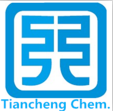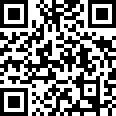Abstract: The sizing mechanism of AKD and its application in special packaging papers were studied.
With the rapid development and progress of the social economy, people have higher and higher requirements for the quality of special packaging papers, and their use has become increasingly widespread. The traditional packaging paper for rosin sizing has been difficult to meet the requirements of users. One of the main trends in the chemistry of papermaking wet end during the past 10 years has been the conversion from acidic sizing to neutral sizing. The paper is manufactured at high pH under neutral sizing conditions. The advantage is that the corrosivity of the equipment is reduced, the fiber can be well swelled, the strength is greatly increased, the filler content is increased, the paper web is easy to dry, the vehicle speed is increased, and the output is increased. Energy consumption is reduced, pollution is reduced, and aluminum sulfate is not used to avoid yellowing and brittleness of paper, facilitating long-distance transportation and long-term storage of paper. AKD neutral sizing is one of its typical representatives. According to reports, as far back as 1997, global cultural paper production used neutral sizing, with 95% in Europe, 72% to 75% in North America, and 35% in Japan. In 1986, China began to use the imported AKD to make medium-to-high-grade paper and succeeded.
Although Minfeng Paper Company has a history of more than 70 years, it still uses traditional acid sizing technology in the production of special packaging paper. Special packaging paper is one of the leading products of the series of packaging paper used by Minfeng Special Paper. Its final products are mainly exported to South Korea, Japan, the United States and other countries and Taiwan. Recently, users have repeatedly reported that special packaging paper has the problems of easy yellowing and brittleness, and the appearance quality after printing and storage is poor, which affects the normal use of customers. The application research of AKD neutral sizing technology in special packaging paper not only solves the problems reflected by users, but also expands the selectivity of the raw materials of the products, making the inherent quality, appearance, and feel of special packaging papers very good. Great change, at the same time, lower production costs, waste water pollution load.
1 AKD sizing mechanism
AKD is an abbreviation of alkyl ketene dimer and is a fiber-reactive synthetic sizing agent. Under alkaline conditions, its reactive functional group can react with hydroxyl groups on cellulose to form covalent bonds and fixate on fibers. In the above, a stable film is formed on the surface of the fiber, and the fiber is changed from hydrophilic to hydrophobic, so that the paper obtains water resistance.
Although AKD has a functional group capable of reacting directly with a cellulose hydroxyl group, it does not substantially react at the wet end of the paper machine. After the AKD emulsion is added to the slurry, the sizing agent particles are only dispersed in the slurry system, and multiple sizing agent particles can form relatively large agglomerates. These agglomerates and individual sizing agent particles are adsorbed on the fine fibers. , filler and fiber surface, after the Internet with fine material retention and retained in the wet paper sheets, when AKD is only in the form of electrostatic adsorption and free form, its covalent bond with cellulose has not yet formed. In the drying section, as the moisture in the sheet decreases, the AKD particles melt and expand on the surface of the fiber due to the influence of the drying temperature. The reactive functional groups of the molecules face the fibers, and the hydrophobic groups partially face outward, toward the reactive functional groups of the fibers. The hydroxyl group of cellulose reacts to form a covalent bond, thereby fixing it on the surface of the fiber and completing the sizing process.
2 Production and Application of AKD Neutral Adhesive
2.1 Introduction to Special Packaging Paper Special packaging paper is a kind of high-grade packaging paper. Its main features are high whiteness, smooth surface, high smoothness, non-destructive packaging, good single-sided printing performance, high strength, and paper quality. yellow. The main technical indicators are shown in Table 1.
2.2 Production process conditions
Raw material ratio: w=60% bleached wood pulp, w=40% bleached straw pulp.
Beating, mixing process conditions:
(1) Crusher: 1.5 packs of Russian bleached softwood pulp and 0.5 packs of domestic bleached straw pulp per row. Control the pulp concentration 14 ~ 18g, special packaging paper back to the paper with a uniform trial. Add 1200mL of SS-02 imported dye per row. SS-02 imported dye added method: Take SS-02 imported dye 1kg, add 10kg water to dilute to the desired dye. When the material is unloaded to half in the crusher, 1 kg of the dye with well-matched filter is added to the slurry after filtration through a 100-mesh screen. It is strictly forbidden to add the mixture prematurely or too late to avoid chromatic aberration.
(2) Slurry: Wood pulp slurry is controlled at 26 to 30° SR and wet weight is 4.5 to 5.5 g. The pulp slurry was controlled at 22-26 SR and wet weight 2.0-3.0 g. (3) Slurry: After the slurry in the pulp chamber is full, add SN-01 cationic starch w = 1 % (for desiccated pulp), (SN-01 cationic starch dissolution method: take a packet of 25 kg of starch in rosin The water in the tank is dissolved into half a barrel, stirred with warming until it becomes transparent. The pump is pumped into the tank and used in the upper barrel), and then N-03 calcium carbonate is added to 50kg. [N-03 Calcium Carbonate Dissolving Method: Dissolving in the paper machine packing Add 2 bags of N-03 calcium carbonate (50kg) into the barrel, mix with water and dissolve it evenly. Add it to the sump through the filter screen]. Controlled paper ash content ≤ 6%; domestic AKD neutral collagen solution was added in the high tank, the flow rate was 120 mL/min (liquid glue, solids content 15%), and the control pulp consistency was 12.0 to 15.0 g.
2.3 Special Packaging Paper Making Equipment
Long-line single-cylinder paper machine, speed 40 ~ 80m/min, adjust the height and angle of the lip cloth pad, can be made of 30 ~ 90g/m2 wrapper, the high level liquid level control of the pulp speed pressure, dryer surface temperature 60 ~ 120 °C, with release agent cylinder surface spray device. In production, the basis weight is 60g/m2 and the actual speed is 80m/min.
2.4 Control and Use of AKD in Production
1) Add a small amount of preservative MS-5 to the slurry before adding AKD to reduce the production of slime, shorten the flushing time, and improve the effective operation time of the paper machine.
2) The AKD sizing has a hysteresis phenomenon. The paper roll continues to run even after it has been machined. The best value is achieved within 6 to 10 days. Therefore, the sizing control is based on the experience reference.
3) AKD dosage w = 0.15% to 0.25% (for dry pulp), the original liquid diluted 2 times and stirred, with a metering pump from the high box at the drop, to prevent hydrolysis loss, and add alkali to control the slurry pH value of 7.0 ~ between 7.5.
2.5 Testing Instruments and Methods
Whiteness: YQ-Z-48A Whiteness Color Tester (Hangzhou Light Instrument Development Company); Bursting Resistance: YQ—Z—23A Electric Paper Bursting Resistance Tester (Hangzhou Light Industry Testing Instrument Factory);
Quantitative: YQ-Z-45 type paper quantitative standard sampler (Changjiang Papermaking Instrument Factory, Sichuan Province) and electronic balance (Sichuan Changjiang Papermaking Instrument Factory);
Tear: YQ-Z-20 type paper tear tester (Changjiang Paper Machine Factory, Sichuan Province);
Smoothness: YQ-Z-30A Smoothness Tester (Hangzhou Light Instrument Development Co., Ltd.);
The ash was determined by the combustion method, the moisture was measured by a conventional method, and the paper pH was measured by a colorimetric method. Test room temperature and humidity, temperature 23 ± 1 °C, humidity (50 ± 2)%. All testing items are measured according to the current national standards.
2.6 Application of AKD Results and Discussion
2.6.1 Effect Test of AKD Sizing Application
1) Table 6 shows the comparison of the effect of AKD sizing and the determination of the target and the original acid sizing.
2) The comparison of the effect of the AKD sizing and the indicators of the original acid sizing is shown in Figs. 2 to 4.
3) User trial results. This time, a total of 17 tons of special packaging papers were produced, and the results were better when users used them for coating, lamination, or printing. At the same time, through trials, users in Shanghai, Wenzhou, and Beijing are satisfied with the whiteness of the base paper and the difficulty in returning yellow.
2.6.2 Economic Benefit Analysis
1) The product was sent to several users to try it out, basically meeting the special requirements of the customer;
2) Improvements in whiteness and other indicators have opened up new directions for rice and wheat straw production;
3) The cost of production is reduced, and the cost per ton of paper is reduced by about 80 yuan;
4) Avoid the corrosion of mechanical equipment by acid papermaking and extend the service life of mechanical equipment and special equipment; (potential benefit)
5) Reduced environmental pollution (BOD, COD, SS decreased by more than 50%), in line with the development trend of the international paper industry. Since the first trial production of AKD neutral sized special wrapping paper, there are still many problems in the actual production and user use process. There is a certain amount of deviation between the amount of AKD and cationic starch. Individual special packaging materials used in the process to reflect our paper sheet and plastic film lamination, can not be firmly combined, easy to cause stripping. In the future, it is necessary to conduct research on the amount of AKD added, the amount of retention aids added, and other process conditions. At the same time, based on the original experience, we will improve the operation level of the paper machine, improve product quality, and stabilize product quality.
3 Conclusion
Through the application research of AKD, some experience has been accumulated for making AKD neutral sizing paper in the future. At the same time, special packaging paper cannot be added because it cannot add brighteners. Whiteness cannot meet user requirements, and the paper pH value cannot be satisfied. The question asked by the user has raised the problem of product grade and user suitability of the paper sheet. On the other hand, the application of AKD neutral sizing technology in special packaging papers has resulted in a significant reduction in production costs, a reduction in the pollution load on wastewater, an increase in economic benefits, and a reduction in environmental pollution load, facilitating the long-term development of enterprises and benefiting future generations.
13475377289











